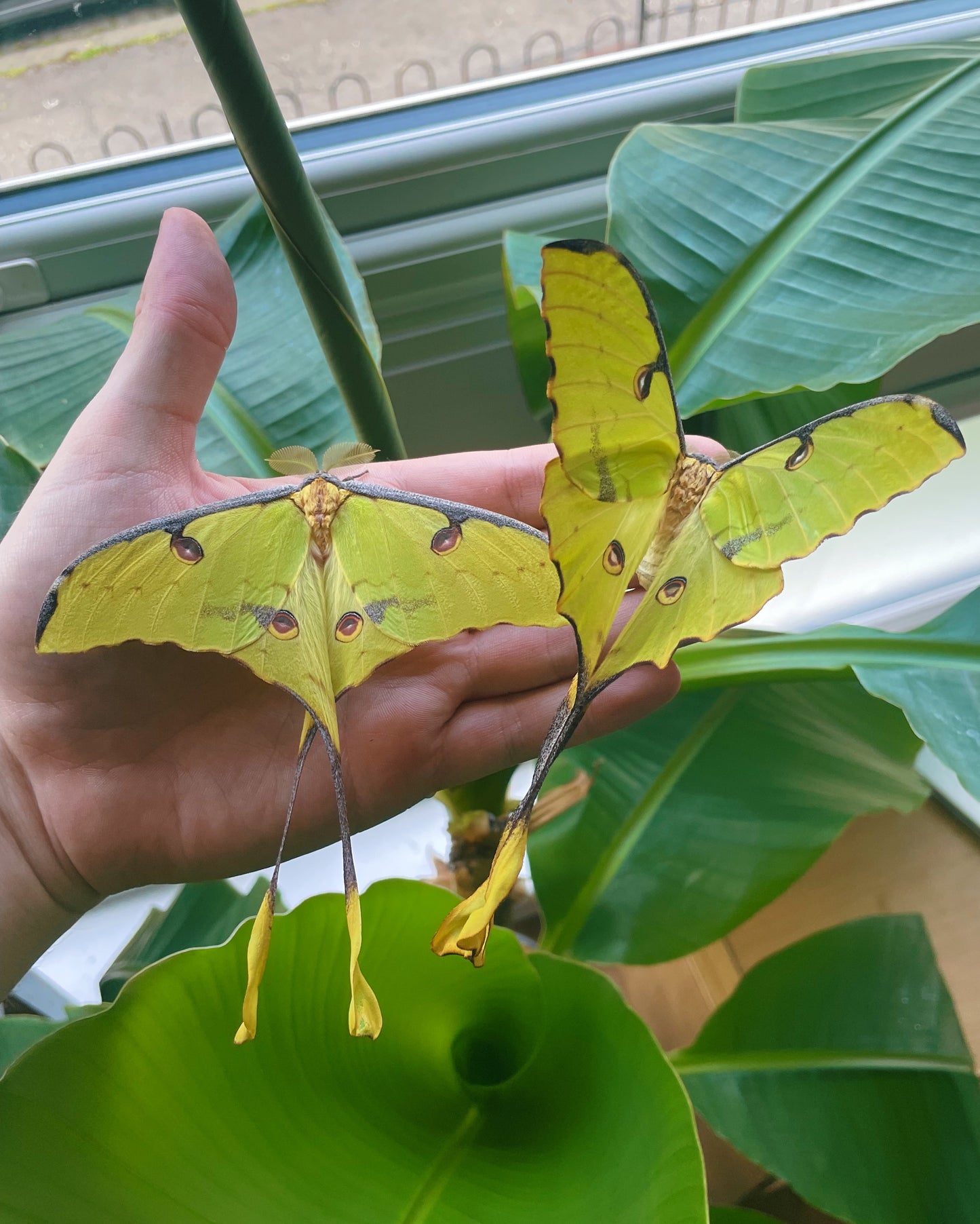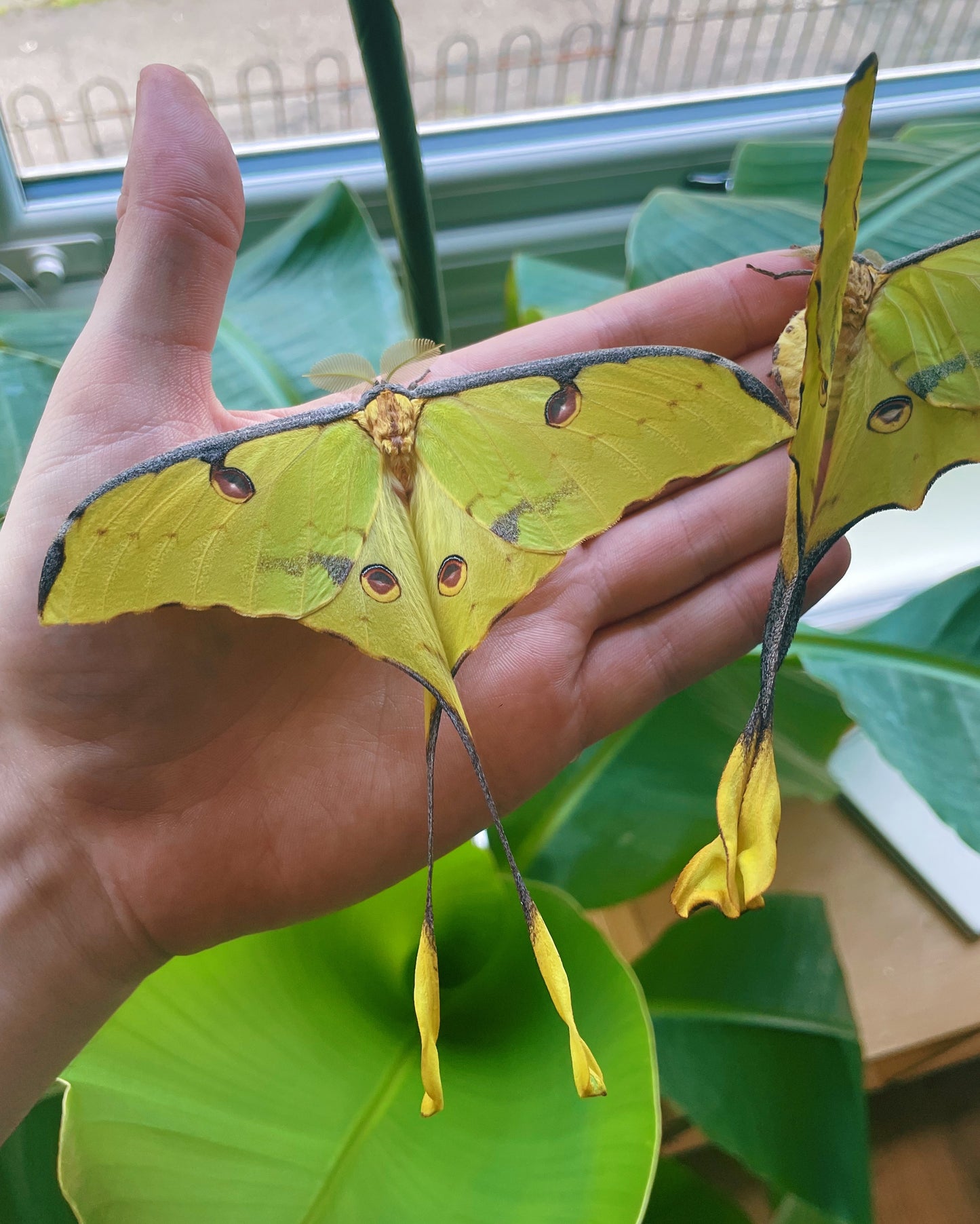The African Moon Moth (Argema mimosae) is one of the most iconic and sought-after silk moths in the hobby, renowned for its large size, elegant shape, and dramatic life cycle. A long-time favourite of butterfly houses, breeders, and private collectors, this species is both visually striking and rewarding to rear.
Native to eastern and southern Africa, A. mimosae survives harsh dry seasons inside an exceptionally robust cocoon, emerging naturally during the wet season. In captivity, emergence can be reliably encouraged by keeping cocoons in a warm room and misting daily to mimic seasonal humidity. We always recommend a very heavy misting for African species, as they tend to respond better/faster to this compared to a lighter misting offered to other species.
Adult moths pair readily once emerged, though successful breeding depends on timing, as males and females often emerge a time apart one another. Eggs hatch in two weeks, and the larvae display a fascinating sequence of colour changes: red and black striping in early instars, solid red in the second instar, and then bright green from the third instar through to pupation. They are curiously shaped with angular bodies.
Larvae are easy to manage with standard rearing methods:
-
Early instars thrive in plastic containers
-
Later instars do best in mesh enclosures
-
Mature caterpillars benefit from light misting, drinking water droplets from leaves
Host plants are readily available:
-
Summer: Sweetgum (Liquidambar), Smokebush (Cotinus), Staghorn Sumac (Rhus typhina)
-
Winter: Eucalyptus
When kept warm and humid, Argema mimosae can be continuously brooded in captivity, making it ideal for breeders. In the wild, it is strongly seasonal, with peak flight periods around October and January, indicating two natural broods per year.
Why do we recommend Argema mimosae?
-
Classic, high-impact display species
-
Suitable for beginners with basic experience
-
Excellent for education, exhibition, and breeding
-
One of the most impressive African silk moths available
A true standout species that combines beauty, resilience, and fascinating biology, the African Moon Moth is an outstanding addition to any serious moth collection.



































